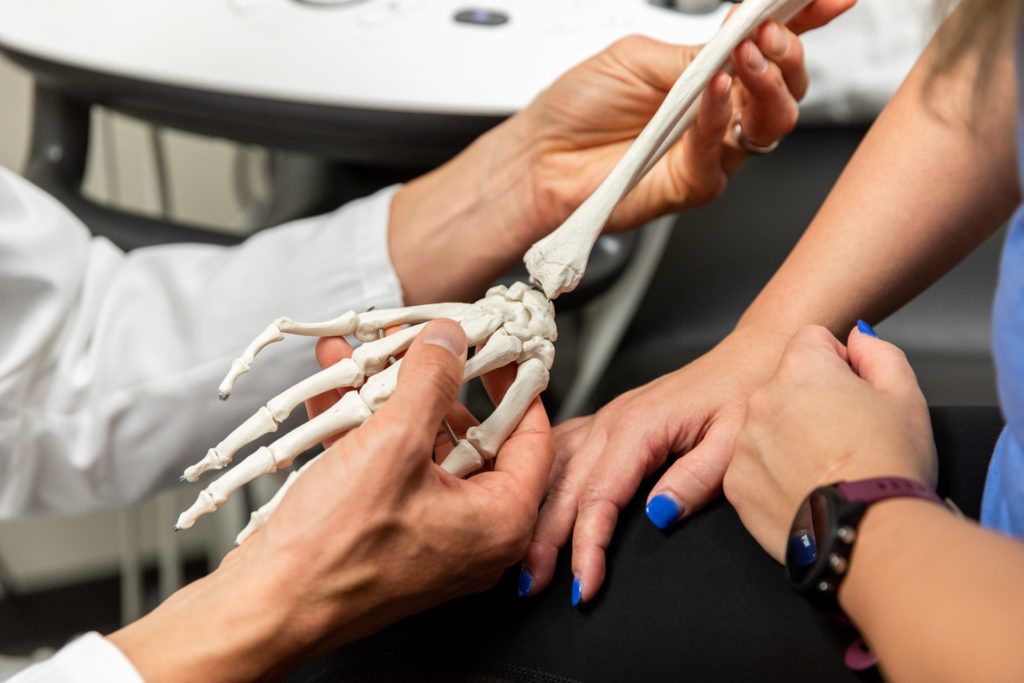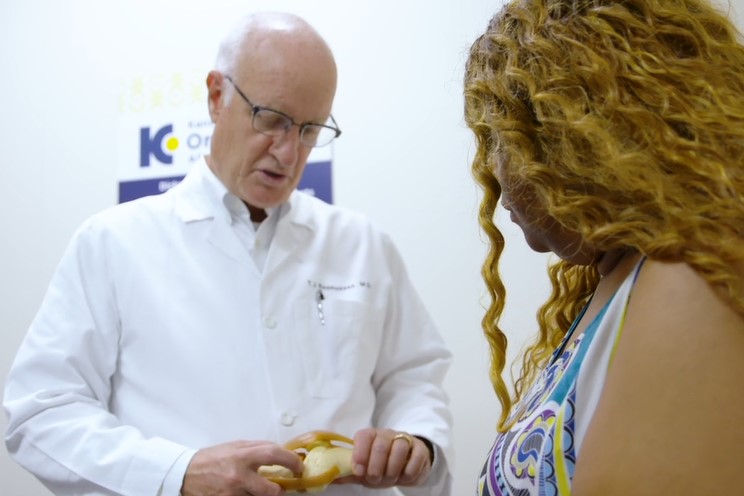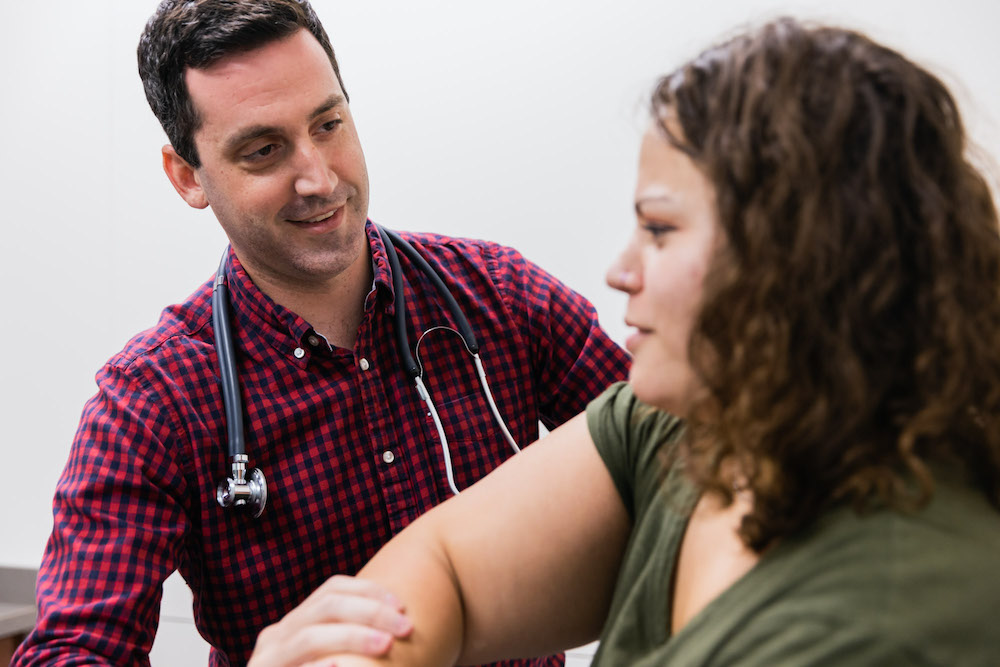

May is Arthritis Awareness Month, dedicated to raising awareness about the effects of arthritis and educating patients about treatment options. To show our support, Dickson-Diveley Orthopaedics sponsored the Arthritis Foundation’s Walk to Cure Arthritis on May 7 at Worlds of Fun in Kansas City. Physicians and staff, including Drs. Fermin J. Santos, Scott A. Wingerter and Theodore D. Koreckij, walked in the race and volunteered at the event to help raise funds for arthritis research.
According to the Arthritis Foundation, arthritis is the No. 1 cause of disability in the United States, affecting more than 50 million adults — and that number is expected to grow. Despite its prevalence, there are still many misconceptions associated with the disease.
Contrary to popular belief, arthritis is not just one condition, but rather a group of musculoskeletal disorders involving joint pain and inflammation. In fact, there are many types of arthritis, the most common being osteoarthritis and rheumatoid arthritis. Arthritis can also lead to other issues, such as tendonitis, bursitis (including in the hip, elbow and shoulder) and runner’s knee. These conditions can affect many areas of the body.
Arthritis is more common in women and occurs most frequently in older patients, as well as those with a family history of arthritis or who have been exposed to a previous joint injury, such as a sports-related injury. Additionally, wear and tear on joint cartilage, immune system dysfunction and obesity can cause arthritis.
Depending on the type of arthritis, signs and symptoms may include joint pain, inflammation, tenderness, stiffness, redness, decreased range of motion and/or fatigue. In addition, severe arthritis can impact daily activities and overall quality of life. It’s important to seek treatment early to protect your joints from permanent damage.
The board-certified and fellowship-trained physicians at Dickson-Diveley Orthopaedics specialize in diagnosing and treating many types of arthritis, including thumb arthritis, ankle arthritis and more. Depending on the severity of your condition, treatment may include medications, corticosteroids, alternative therapies, supplements, exercise or weight loss. Orthopedic surgery, including arthroscopy or joint replacement, may also be an option. To learn more about care and treatment for joint pain at Dickson-Diveley Orthopaedics, please contact us.

***
The medical information contained in the Dickson-Diveley Orthopaedics website is provided to increase your knowledge and understanding of orthopedic conditions. This information should not be interpreted as a recommendation for a specific medical or surgical treatment plan. As each patient may have specific symptoms or associated problems, the treatment regimen for a specific patient may not be the proper treatment for another.
Gaining knowledge and understanding of a particular problem or condition is the first step in any medical treatment plan. We believe the information presented on our website will be helpful for those individuals experiencing arthritis, orthopedic injuries or other related problems. However, this information is not intended to replace the advice of your family physician. You are encouraged to consult with your physician to discuss any course of treatment presented or suggested.


